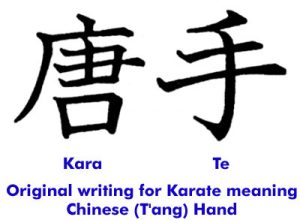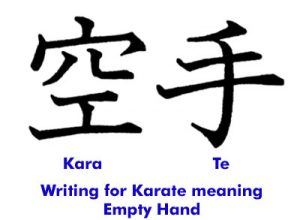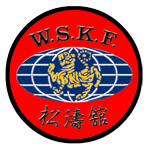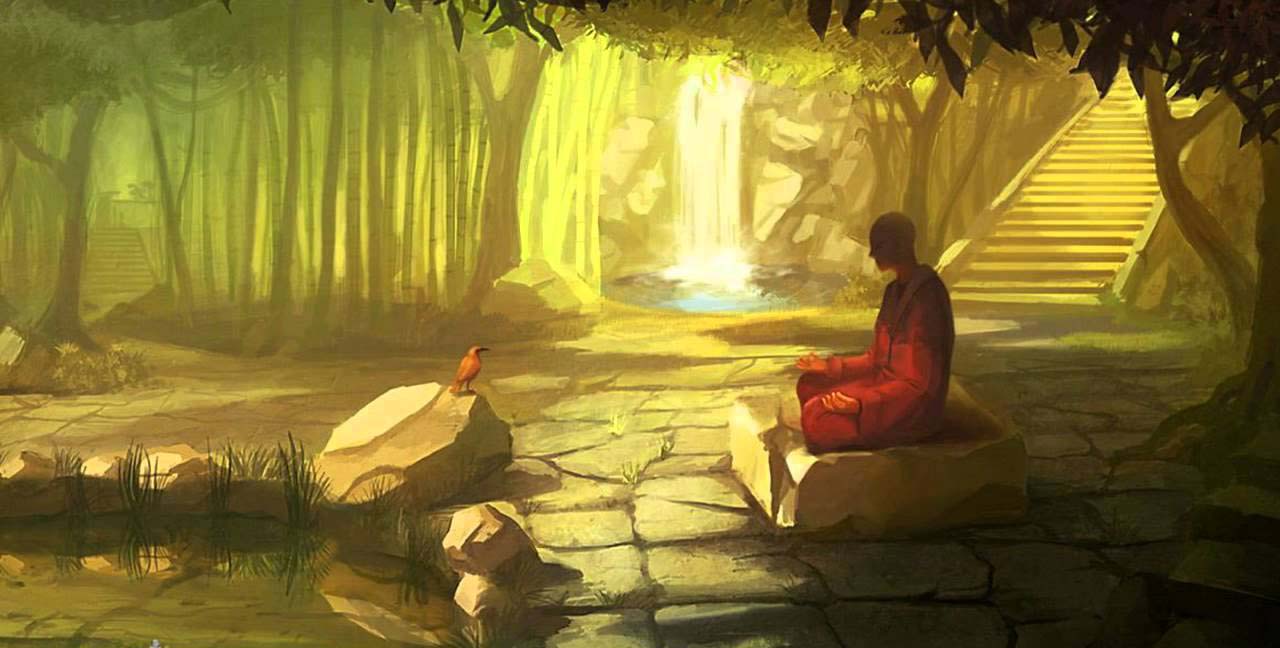
The meaning of the word “karate”
The Japanese language is not an easy one to master sometimes even for Japanese! Different characters may have an identical pronunciation whilst a single character may have many pronunciations and a good example of this is the word “karate” a word that has connections to Zen Buddhism and whose derivation was not without controversy!
In fact the word “karate” is made up of two characters – “kara” and “te”. The “te” part is fairly straightforward meaning “hand” however the “kara” component has two meanings and both sound the same. Kara can mean empty, but can also mean Chinese (specifically referring to the T’ang Dynasty).

Before Funakoshi Gichin Sensei introduced karate into Japan in the early 1920’s, The “kara” character for Chinese was commonly used in the makeup of the word karate. This was quite possibly because at that time Okinawa was, and had been for hundreds of years, under Chinese influence and anything from China was deemed fashionable. Wrongly, many people therefore thought that karate was a form of Chinese boxing however Funakoshi Sensei thought this was not the correct way to describe this Okinawan karate.
Only few years after arriving in Japan, the Keio University formed a karate research group and to this group Funakoshi Sensei put forth the name best suited to his fighting system – “Dai Nippon Kempo Karate-do” (Great Japan Fist Method Empty Hands Way) making use of the character for ’empty’ rather than that for “Chinese”. This change received a good deal of criticism both in Japan and in Okinawa relating to cultural identity and even socio-political issues but Funakoshi Sensei maintained his stance on this matter and we use this meaning of kara in the word karate this very day.

Funakoshi Sensei considered the “empty” meaning of the ‘kara’ was more appropriate. Superficially it symbolises the obvious fact that this martial art uses only bare hands and feet – completely devoid of weapons – and he also felt was that it represented an emptying of the heart and mind of all earthly desires which is a Buddhist concept . . . one of the Void.
The Zen Buddhist concept is one where the Void was considered the source of all virtue, good and wisdom where no evil could exist. At a more philosophical level therefore, perhaps the word “karate” could be considered as “void hand” where “void” relates to the skill that comes from the Void.



